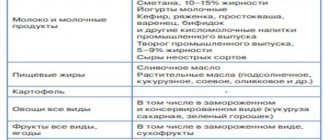The birth of a child into a loving family is a miracle that brings more and more joy every year.
Every parent closely monitors their child. In addition to medical examinations, mothers and fathers independently check age standards. The first smile, laughter, revolution, and, of course, the first most important step. Parents are very worried if their child is developmentally delayed. Parents especially often panic due to speech development. And everyone asks the question: at what age should a child’s first words appear, according to generally accepted standards?
The main thing that all mothers and fathers should understand is that each child is individual and has his own development standards. But sometimes you still need to seek help from a doctor. Let's look at this issue in more detail.
The main stages of the formation of the speech apparatus
There are 2 main stages of speech formation: passive accumulation of words (the baby does not yet know how to speak, he only listens to the speech of his parents and other people around him and remembers, learns to reproduce words and sounds, but is not yet capable of exact repetition) and active accumulation of words (the child repeats heard sounds, can reproduce whole words, phrases, sentences).
To the question of how old children begin to speak, the answer will vary from one to three years. During this period, speech changes greatly, becomes active, meaningful, includes not only individual words, but also phrases and sentences, the complexity of which gradually increases . It is impossible to answer exactly at what months a child begins to speak the first sounds; this process is individual. If you suspect a delay in speech development, it is better to consult a pediatrician.
Stages of child speech development
A newborn can only scream and cry; He doesn't make any other sounds yet. A scream indicates to adults any need: food, drink, changing a diaper. A baby may scream if it is in pain, discomfort or scared.
However, there are also smaller stages. In the first month after birth, the baby learns to respond to speech and can reproduce any sounds in parallel with a speaking adult. Then learning to reproduce simple sounds and individual syllables occurs. Later, children learn to determine intonation and recognize by their voice who is speaking to them: mom, dad or other close relatives.
Around 8 months, repeated syllables appear in the child’s speech. A little later, children learn to speak simple words consisting of identical syllables. By the age of 1, they understand words addressed to them well and can fulfill simple requests. The vocabulary consists of several words made up of repeated syllables. After this, the vocabulary quickly increases, and the child’s speech becomes more similar to that of an adult.
Normally, children begin to speak after a year: the phrases they utter gradually become more complex. When children begin to talk, you should monitor the quantity and complexity of what is said: there are age standards, failure to comply with which doctors consider a deviation in speech development, a delay.
At what months do babies start talking?
Speech is an important tool for communication and socialization.
It begins to develop from birth. First, the baby makes the vowel sounds “a”, “u”. This is how he expresses his needs. From the age of two months, babies become more animated, uttering drawn-out sounds more often, giving them an emotional coloring. They start cooing. By two months, the mother already knows the child well, understands what sounds he uses to express joy, hunger, discomfort, and how he tries to make it clear that he is bored.
At the age of three months, the baby begins to make not only vowels, but also consonant sounds (g, x, k, p, b), and combines them in a certain way (“gu”, “agi”, “agu”). At six months, parents notice the baby's babbling. It differs from humming by the repetition of syllables.
For example, a baby can repeat the sounds “pa-pa-pa”, “ba-ba-ba”, “ma-ma-ma” for a long time. He pronounces them unconsciously. The baby begins to understand what adults are telling him. He develops a passive vocabulary. During this time, it is important to communicate with your child as much as possible.
At seven months, the baby continues to babble. At this age, he begins to play with the timbre and volume of his voice: he drawls out sounds, alternating low and high notes.
A passive vocabulary continues to form. The baby begins to imitate the speech of his parents and the sounds made by adults, animals, and cars.
At 9-10 months, the child pronounces new sounds and communicates with gestures. At this age, he is able to pronounce about 10 monosyllabic words: “woof”, “baba”, “koko”. Girls usually develop speech faster than boys. At what time children begin to speak their first words largely depends on the parents: on how they work with the baby, how they communicate with him.
Physical, intellectual and mental development and hereditary predisposition also have a certain influence. Therefore, it is difficult to give an exact answer as to what time the baby will speak. Caring and persistent parents can speed up the onset of this moment.
The more often a child hears the word “mom,” the faster he will learn to pronounce it.
At what age does a child say his first words?
Repeated syllables can appear in baby babble as early as 6-8 months, but calling them words is incorrect: the child only repeats the syllable many times, makes more repetitions than required, and may not understand the meaning of what was said.
At the same age, it is possible to copy surrounding sounds and attempts to imitate animals, which should also not be taken into account.
According to the standards established by pediatricians, the child begins to pronounce and speak his first words at approximately 8-10 months. First he pronounces those that consist of the same syllables: “mama”, “lala”, “dad”, etc. More complex ones are pronounced later, often after a year. It is also possible to pronounce monosyllabic words: “give”, “na”. There are many individual syllables in speech, some of which children designate surrounding objects that have names that are too long and complex for a small person.
When does a child start saying “mama” and “dada”?
Most children begin to say “mama” and “dada” between 9 and 11 months. At the same age, other similar words appear: “lyalya”, “baba”, “uncle”. When a child begins to say “mom” depends on his individual characteristics. If the mother prefers to tell the child her name, the baby grows up without a father, it may take longer, since the small child reproduces only what he heard before.
What are the first words children say most often?
“Honey, he said his first word!”
Well, this is an important milestone in the initial life journey of a new member of society. With what trepidation parents await the first words of their children! An exciting moment.
But is it really important what word the baby says first? “Mom”, “dad”, “grandmother” or “grandfather”? If he names this or that word or sound, sound complex, imitation... does this mean that he is extremely interested in someone (something), loves or shows such sympathy? We tried to find out and we can say: yes and no.
Since pronouncing words is a complex process, in anticipation of which the baby will have to practice a lot, develop a speech apparatus, realize the need to pronounce, combine different words and sounds, and so on and so forth.
see also
25 Kids Who Sent Very Funny Messages to Their Parents
When will the baby learn to form phrases?
Babies will speak phrases later. Boys begin to speak in sentences and phrases more often later than girls. The difference, however, is not too great, rarely exceeding 1-2 months. Most children learn their first word combinations between the ages of 1 and 1.5 years.
Sometimes a child begins to talk later: often this disorder is caused by a long-term illness. It is recommended to visit a child psychologist or neurologist if speech disorders are noted.
It’s not a speech yet, but it’s time to get busy
The first sounds a baby makes are an important part of preparing the vocal apparatus for speech. This is humming, fluting and babbling. They are rather reflexive in nature and related to the needs of the baby. What time should that “agu” appear?
Auxiliary exercises:
- Finger gymnastics for children
- Articulation gymnastics for children
The baby begins to play at about 1.5 months. At first, these are drawn-out vowel sounds (a-a-a, u-u-u), closer to 3 months the combinations “abu”, “agu”, etc. appear. Then the baby will delight his parents with “songs” in which these syllables and combinations will be chanted (7 months). And by 8-9 months, babbling and the long-awaited “mother” will appear.
You can only hear “aha” when the baby is comfortable. After making sure that he is full, warm and dry, lean over him and clearly pronounce the sounds. The child will be happy to answer you!
As much communication as there should be, there should be as many smiles. What child would want to go out if the mother is gloomy and does not answer him. Respond to any desire to communicate, even if you have important things to do. Repeat “aha” and other combinations with the crumbs, insert new easy-to-pronounce sounds.
Why exactly "ahu"
Due to the imperfection of the articulatory apparatus, the vowels [a], [e], [u] are more like “g-gu” or “g-ha”. This is how the first guttural sounds are born. Their reproduction is easiest for the baby, because only the larynx is involved. So he gets an involuntary “aha” as he exhales. At first, the toddler himself does not understand how this happens, but after long training, he learns to give his “aha” an emotional connotation and inserts it into conversations with his mother.
Mom is the first word
Mothers especially look forward to this word. At what age does a child begin to pronounce the long-awaited 4 letters? Children reproduce the first babbling “mom” after 7 months. While this word doesn’t mean anything, these combinations of sounds are just easier for the baby.
The little one will consciously call his mother only after a year or even 1.5 years. Although most children start with the word “give”. This is understandable. Being able to say “give” is much more important and useful, and mom and dad will wait!
In order for your child to consciously turn to you as quickly as possible, he must be taught this. When performing any actions, comment: “Mom is going to the kitchen,” or “Mom is cooking porridge.” Hide and seek games will also help. Hiding behind a diaper or covering your face with your hands, ask your baby: “Where is mommy?”
Achievements up to six months
During the first month of life, the baby learns to respond to the speech of adults. Often children walk parallel to the conversations of adults. This happens especially often if parents talk to the baby and address him. Begins to distinguish intonations: the mother’s affectionate address helps to calm down faster, screams and aggression are frightening and can cause crying.
By 3 months, the first syllables appear. They are simple, consisting of a small number of sounds. You can hear “ua”, “gu”, “ga”.
By 4-5 months, baby talk acquires an emotional connotation. The child does not just sing or squeal: you can distinguish the intonation with which the sounds are pronounced. Reacts well to adult speech, understands intonation better; When a child hears a sound, he can turn his head correctly in the direction of its source.
At the age of six months, children recognize their parents' voices well, even with a large number of people around. Syllables vaguely reminiscent of “ma” and “pa” slip into speech. They will become clearer only closer to 7 months.
A child's first words
First, the baby imitates, repeating various syllables after adults and sounds after animals. By repeating syllables several times in a row, complete words are formed. However, as we have already said, he pronounces such words unconsciously. After six months he listens and begins to understand adults. Thus, the infant’s passive vocabulary is formed.
Children begin to speak meaningfully by the age of one year. And here an already functioning active vocabulary is formed, when the baby not only understands what adults are telling him. But he also understands words that he understands himself. By the age of one year, the baby’s vocabulary is about ten words; by six months it expands to 15-20.
As a rule, kids begin to understand and say the word give faster, rather than mom and dad. Judging by the statistics, more than half of these children are. The baby happily repeats the sounds of animals, especially if the family has pets. By six months, he can be able to meow, bark and even growl. At the same time, he not only repeats sounds, but also imitates intonation.
A child begins to learn speech from the first days of life. He hears different sounds and speech of adults. Adaptation to the surrounding sound world occurs. Soon the child should learn to distinguish the faces and voices of loved ones who spend a lot of time with the baby. Of course, first of all, this is mom.
Mommy's voice stands out among others. The child quickly grasps its sound. Therefore, it is the mother who should communicate more often and longer than others with her baby and constantly talk to him. Active communication will help master speech, and soon the baby will be able to pronounce the first conscious word.
What can a baby say before 12 months?
By 7 months, the syllables “ma”, “pa”, “ba” are clearly distinguishable and pronounced clearly. The child actively imitates animals (barking dogs, meowing cats and other sounds), well understands simple requests addressed to him (“give”, “bring”, “show”). Knows the names of most surrounding objects, although he is not yet able to name them.
At 8 months, babies actively speak in syllables. The sounds used are “a”, “g”, “k”, “b”, “p”, “u”, “m”, “e”, “n”.
9-11 months is the age at which the baby expands its vocabulary. Can pronounce up to 10 simple words consisting of one syllable or 2 repeated ones.
Not all children's words can be found in adult speech. Little ones often simplify complex names into onomatopoeias: they call a dog “av-av”, a car “bi-bi”, a train “too-too”. The child understands what he sees and can show an object if an adult names it, but is not able to reproduce a complex word on his own.
What are the first words?
Now let’s dispel the myth about the first word. Today in pediatrics it is customary to consider the first word to be one that is used in the same meaning and refers to the same objects or actions. That is, with this approach, the baby’s vocabulary may contain distortions and onomatopoeia (kaka, wawa, tsatsa, aw-aw, bibika, am-am). At the same time, “wava” means a lot of objects or actions that cause pain, “kaka” means everything that is dirty or not suitable for food. In such cases, we can assume that the child says the first word (otherwise, such syllable combinations are a sign of babbling). For the appearance of such words, the approximate age will be 10–12 months.
At the beginning of mastering the skill of speaking, the baby pronounces words consisting of one repeated syllable or two different ones. More significant achievements will come later - everything has its time.
The baby says the first word associatively, relating it to the object in the field of vision and to the analogies that it evokes in the baby. A child’s first word is not always “mama.” For example, an adult may not understand that a car tire is called “katan” (the kid saw dad rolling it once and remembered the association: dad said “roll”). Or, while playing in the bathtub with rubber ducklings, I remembered that “ducklings” can be found in water. When he sees a puddle or lake on a walk, he can now say “duck.”
If the association is stable and can be recognized, the child speaks words. Moreover, if a child under 2 years of age has not seen ducks in life or in pictures, he will not say this word.
What does a baby say from one year to two?
At the age of one to one and a half years, children introduce phrases into speech. The child begins to understand shapes and colors well, recognizes animals and household objects, and can point to fairy-tale characters. Speech is quickly enriched: the child learns to speak in sentences that gradually become longer.
Closer to 2 years, the child will begin to ask and formulate questions. Gradually understands more and more complex requests, better describes what he observes around him.
Tips and tricks for parents
In order to help the baby quickly learn new words and their use, parents need to strictly follow some rules and recommendations of pediatricians. The main ones:
- It is important for the expectant mother, while pregnant, to talk with the baby, but if this time has already been missed while the baby is awake, communicate, but the main thing is eye contact.
- Develop the habit of talking about everything you do, take or see.
- In the first stages, intonation is extremely important, since the baby only catches it, therefore, it needs to be changed more often.
- Try to pronounce each word clearly and slowly, otherwise the child may pronounce incorrectly in the future.
- Don't say too long sentences.
- Simplify your words, for example, say “woof” instead of dog, or “quack” for duck.
- Add new ones gradually.
- If you are talking to a child, you need to turn off the TV.
- Read poems and fairy tales to your child.
- Develop your child's fine motor skills.
When talking to your child, speak in a soft and quiet voice. Only with the help of such simple rules, parents will help their child master speech.
Dear parents, remember that the main thing is attention and communication with your child. It is recommended to read fairy tales, poems, fun stories, etc. before going to bed or at other times of the day. Pronounce the words, and the baby will soon begin to imitate. By 8 months the baby will be speaking words or first syllables. If the baby does not utter a word before the age of two, there is no need to worry, despite the fact that there are no factors that influence developmental delay. We must not forget that all children are individual.
Sep 9, 2017Violetta Lekar
What indicates a delay in speech development?
Only a pediatrician can establish a delay in speech development. There is no need to make a diagnosis yourself.
A sign of retardation is difficulty chewing food. This may indicate improper development of the mouth, which will prevent the baby from speaking normally. You should be wary if your mouth is constantly open and saliva flows out of it.
Hyperactivity, inappropriate behavior, and a complete lack of desire to communicate with others (including parents and close relatives) are alarming symptoms.
If a three-year-old child speaks slurredly, his speech is incomprehensible to others, and there may also be a delay in speech development.
The age at which children go through various stages of speech formation may also indicate the presence of deviations. If a child does not pronounce words for too long, does not begin to speak in phrases by the age of one and a half years, poorly understands speech addressed to him, and did not play around in infancy, measures should be taken.
Causes of delayed speech development
The speech apparatus may develop incorrectly due to disturbances in intrauterine development. If the mother led an unhealthy lifestyle, smoked, consumed alcoholic beverages, drugs or aggressive medications during pregnancy, the baby may experience deviations in physical and mental development that negatively affect the ability to speak.
The disease can have a negative impact. If a child has an infectious disease at an early age, his development slows down for a short time. In the absence of complications, however, the condition will soon return to normal, and the baby will no longer lag behind the established norm.
There may be insufficient development of the oral muscles. Children prefer soft food to hard food and often drop food. A possible reason is early interruption of lactation: the baby makes more effort to get mother's milk than when drinking from a bottle, which helps strengthen the mouth muscles.
Problems may arise with concentration. It is difficult for a child to concentrate on the words of adults, which is why the baby remembers what was said worse and has difficulty reproducing.
Hearing impairment may occur. The child does not hear what is said well enough, cannot reproduce, does not understand speech, and does not passively increase vocabulary in infancy.
Becoming Conscious Speech
There are no uniform calendar dates and norms that state how many months a child should speak. However, speech formation usually occurs in stages in everyone: each baby starts with a funny “aha” and, ultimately, comes to correctly formed sentences.
Related material:
- How to teach a child to pronounce the letter R
- How to teach a child to pronounce the letter L
Babble or words?
The line between babbling and consciously spoken words is very thin, but still distinguishable. Babbling is syllables repeated many times, which are especially loved by the baby. But when the baby says “give” and points his finger at the desired object, this is already a real word.
It is difficult to answer with certainty when this will happen; all children go through a different path of speech development, which is influenced by many factors. One one-year-old child speaks 15 words, another only 2. At this age, it is more important that the baby understands the speech addressed to him, accumulating his passive vocabulary.
How can I check this? Ask your child to give you a doll or a ball. If he fulfills the request or at least finds the object with his eyes, everything is in order.
How the active vocabulary grows
On average, the active vocabulary of one-year-old children is replenished with 1-6 words per month. This can continue for up to two years. But most often, after 1-1.5 years, the time for a “lexical leap” comes, in which the baby “produces” 8-10 words every week.
And after a few months, a “lexical explosion” may even occur, where the baby learns as many words in a day as he had previously learned for weeks.
The appearance of phrases and two-word sentences
The speech of 1.5 year old children is still very difficult to understand. They can highlight only stressed syllables or leave only the last combinations. But it is precisely this age that is considered the starting point for the emergence of phrases. For example, they may sound like this: “Give me ok,” which means “Give me juice.”
After 2 years, offers appear. They still consist of 2-3 simple words and do not follow grammatical rules.
If the child does not speak in sentences or phrases before the age of 2.5 years, parents need to contact a pediatric neurologist to rule out delayed speech development (SDD).
Until the age of 2 - 2.5 years, a child is usually understood only by relatives; at an older age (about 3 - 4 years), the child becomes a full-fledged interlocutor, uses common sentences, correctly coordinates words, tirelessly asks questions “Why?”, “When?”.
What to do if your baby speaks poorly?
If deviations are noted, lack of the required level of development when the child should start speaking, you need to go to the pediatrician. The doctor will rule out medical causes or prescribe appropriate treatment.
You should talk more with the baby from the first days of life. There is no need to lisp: the child must hear the correct pronunciation of words in order to pronounce them without mistakes in the future.
During the conversation, you should try to interest the child: you need to speak emotionally. In the evening you should read books or tell fairy tales of your own composition.
If the oral apparatus is poorly developed, special exercises are selected to help strengthen weak muscles. It is useful to blow, whistle, and draw in air.
Regular physical activity will help develop mental abilities. You should dance with your child more often, sing, and develop fine motor skills with the help of special toys, games, finger exercises, and massage of the inside of the palms.
Answers to frequently asked questions by parents
How do children start talking?
At first, unconsciously, when the pronounced sounds are the result of vocal reactions at randomly occurring positions of the speech organs. The intonation of speech of the people around you gradually changes and is copied. Then - first syllables, and then simple words of a rather onomatopoeic nature.
Well, and progressively: simple words, spoken, albeit not very clearly, but with meaning, appeals to loved ones, bright intonation, telling simple rhymes, and, of course, the famous “why” and “why.”
What time do girls and boys start speaking? Is there a difference?
According to statistics, boys begin to talk later than girls, at approximately 2.5-3 years. Although this is also individual.
How to understand that a child will speak soon?
If your baby is already 2 years old and he pronounces syllables, imitates the sounds of living nature, if he is active, cheerful, hears live human speech and is a participant in communication between close people, then have no doubt - he should be about to speak.
If the family is bilingual, how does this affect when the child should start speaking?
Children are very receptive to languages. Moreover, before the age of 5, learning a second language is very easy. Mastering two at once may lead to some speech delay, but it will be insignificant and implicit.
What other children start talking later?
Later, overly emotional children may begin to speak, because words cannot “keep up” with emotions. They are too calm, they are also silent - they listen and think more.
Kids, whom adults understand without words, fulfilling all their wishes, are also in no hurry to learn to talk. Or those who achieve everything by shouting.
How can you help your child speak faster?
- Develop fine motor skills: all kinds of finger games, construction sets, modeling, pouring cereals and pasta with hands, crafts with pine cones, stringing beads, lacing and other creativity.
What hinders and promotes speech development
If you are wondering: “At what months does a child speak his first word?” be sure to pay attention to a number of aspects that may hinder speech development. In most cases, the smallest babies stop developing in this area due to the constant sound or background noise that can be created by the TV
Trouble is also noticed when using incorrect word patterns in the form of “lisping.”
More conscientious children stop saying new words due to frequent comments or corrections, afraid of making a mistake. Unfortunately, many parents often correct their children in the wrong tone, so they choose the easiest way - silence.
One cannot help but pay attention to the psychological atmosphere in the family. If a baby is limited in many opportunities, telling him “no”, most likely he will stop developing normally
A good stimulus for speech development is the joyful reaction of parents to sounds and attempts to pronounce something. You can also look at books and objects with clear, large drawings with your child, calling them by name. At the same time, the drawings should not be chaotically scattered, preferably solo. Simply put, there should only be one item on one page.
https://youtube.com/watch?v=7X-Btj5I87I
The development of fine motor skills of the hands is an excellent assistant for the effective development of speech and then writing. To achieve success, you should use activities familiar to children, such as feeling objects of different consistency, modeling from dough and plasticine, and tearing paper.
By the way, swings and motion sickness, which children like so much, are also very useful
It is important to remember that the center for supporting balance is located near the center for speech development, therefore, when one is stimulated, the other functions more actively
Try not to use complex words and sentences in your “adult” speech, confirming your readiness to listen and understand the child. Regardless of age, talk to your baby as much as possible, especially if he is silent.
Speech development in a child
The first cry in the maternity hospital is already a sign of pre-speech development. Crying indicates the absence of psychological abnormalities, the functioning of the vocal cords and the nervous system. Further, the child’s speech will develop in stages, gradually expanding, in accordance with the growth of his needs.
Let's look at the initial stages:
Scream. Designed to attract attention to your person. There are not many reasons for this - the baby is hungry, wants to sleep, the diaper is dirty, or something hurts. These are the basic needs of the first months of life. With the development of such senses as vision and hearing, through loud crying, the child will begin to demand communication and knowledge of the world around him. In the second month, the cry will gain intonation. Over time, mothers learn to distinguish between them, and can easily determine whether the diaper is full, or the baby is sad alone in the room. The cry will linger in the child’s vocabulary for a long time and will be present simultaneously with completely understandable and intelligible speech.
This is explained by habit, a simple display of emotions and a quick way to attract attention.
Gulenye. The child begins to utter more meaningful sounds, striving to interact with the outside world and the interlocutor, at two months
This manifests itself in various combinations of vowel sounds, the repertoire of intonations is enriched - thus, the baby tries to communicate with his parents. Children can walk around on their own, as if trying out new sounds, but with the appearance of someone in the room, the “speech” becomes louder, attention is switched to the person who has entered and the intonation changes radically. Such communication will last up to six months, or even more, depending on the child himself - see the article about partying.
Laughter. Through laughter, a child expresses his delight and fun, so it can also be classified as speech. From four months, children squeal and squeal joyfully when they are played with, and over time they begin to laugh for a long time at grimaces or tickles - which a child at 4 months should be able to do.
At six months, children are sufficiently developed to strive to explore the world - they hold their heads up, know how to crawl, and independently move towards a goal of interest. But various obstacles arise in their way, such as a sofa, table, closet or wall of a crib. The needs have increased, and the moment has come when the child must begin to speak in order to attract parents to help and share new impressions.
Pronunciation of the first syllables
From six months of age, children begin to lead an active lifestyle and the first syllables begin to appear in their vocabulary, along with babbling and cooing. The speech apparatus has already been developed, and the child begins to try to combine familiar sounds, and then uses them in communication. At first, this will not make sense, but over time, in this way, the baby will begin to express his desires and needs. By the age of one year, the “vocabulary” expands to ten or more syllables, depending on the child.
In addition, the baby begins to understand the meaning of words often spoken by parents when addressing him:
- cat – searches for the animal, recognizing it;
- hug mom - extends her arms to meet her;
- where is dad - he searches and, finding, points with a pen;
- Peek-a-boo is a game of hide and seek when the baby covers his face with his hands.
This is an important stage in the development of speech - to understand what is spoken and respond with certain actions. At this time, associations arise between words and objects, which make it possible to express themselves clearly, pushing towards the first words.
Baby says first words
Of course, all parents dream that their child’s first meaningful words will be “mom” and “dad.” Don’t be upset when, instead, the baby confidently says “Give!” What pushes you to pronounce words is, first of all, the need for something, the need to get what you want, and mom and dad are always nearby. From one to two years, there is an active knowledge of the world and one’s capabilities, and therefore, the “ration” of words gradually increases: starting from simple “mom”, “dad”, “give”, “bo-bo” and ending with imitation of sounds - “meow”, “too-too”, “beep-beep”.
The child begins to speak in sentences
From the age of two, the vocabulary consists of 50 words and it becomes possible to construct sentences from them. By this time, the child has completely become accustomed to the environment and understands most of the simple phrases addressed to him: “close the door,” “let’s go for a walk,” “put on a T-shirt,” clearly performing the necessary actions. At the same time, the child learns to independently construct meaningful sentences, expressing his emotions and opinions on any matter. By the age of three, the vocabulary expands to 250–700 words. Pronouns are added to monosyllabic sentences, simple prepositions and conjunctions, interrogative and exclamatory intonations are used, and the number of verbs and nouns in speech increases significantly.
How to help your child talk
The best way is to create all the conditions for communication. Here are the three most important things every parent should do.
Talk
No need to chat non-stop. Just talk to your child when you spend time together.
- Name the things you hold in your hands or hold out to your baby: “This is a ball. And this is a machine."
- Describe what you are doing: “Now we are putting on pants. And now - a jacket. And let’s go for a walk!”
- Explain what is happening around: “Uh-oh, what a loud car!”, “Kar! It’s a crow cawing,” “But mom’s phone is ringing.”
- Ask questions: “Do you hear dad calling us? Let’s run to him!”, “Is your bunny tired? Does he want to go to bed?
- Sing lullabies.
Read aloud
Reading shows the child that there are many different words, teaches how to form sentences, and demonstrates how an action develops. This encourages him to tell his own stories, such as how dolls play with each other, why the car is hidden, or why he doesn’t want to eat your soup.











